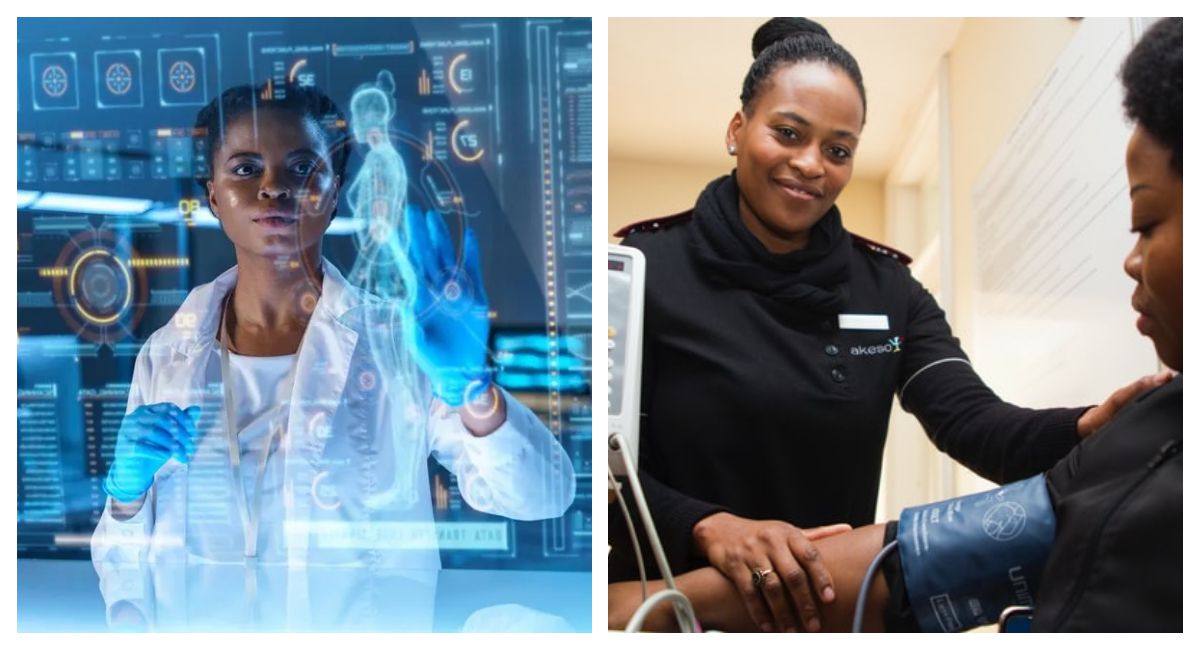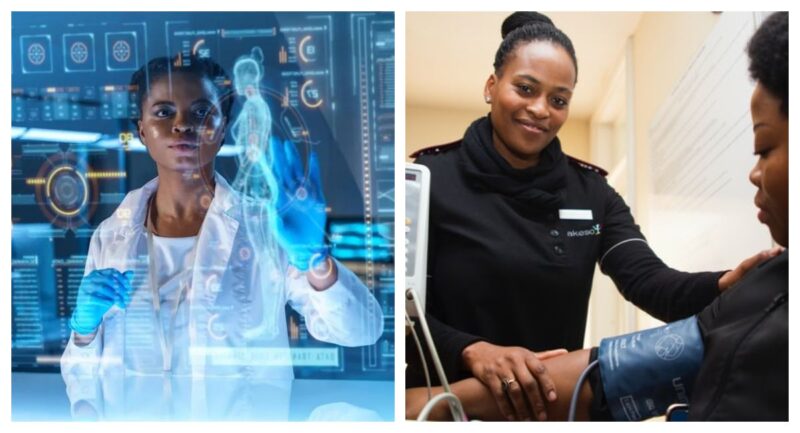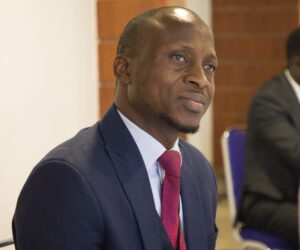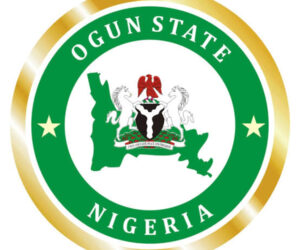
Lagos, Africa’s largest city and one of the fastest-growing urban centres in the world, stands at the intersection of rapid population growth and limited healthcare capacity. With over 20 million residents, the city’s hospitals face immense pressure to deliver timely and accurate medical services.
A combination of factors — limited specialist doctors, rising incidence of chronic and non-communicable diseases, and uneven distribution of medical infrastructure — makes access to quality healthcare a pressing challenge. Long queues for consultation, late detection of diseases, and delays in diagnostic results are common experiences for patients across Lagos.
In this environment, artificial intelligence (AI) offers a powerful opportunity to bridge gaps in capacity and extend the reach of existing healthcare professionals. By automating parts of the diagnostic process and providing data-driven insights, AI can help hospitals in Lagos achieve faster, more accurate, and more affordable care delivery. For patients, this could mean earlier diagnosis, better treatment outcomes, and reduced financial burden.
One researcher advancing this shift is Emmanuel Adefila, a software engineer and AI specialist with a background in biochemistry and a master’s degree in Artificial Intelligence from the University of Bradford, UK.
His academic work demonstrates how machine learning and computer vision can be applied to diverse medical challenges, with clear implications for Nigeria’s healthcare system. Adefila’s portfolio spans projects in ophthalmology, oncology, cloud-based AI deployment, and data-driven risk prediction, making him a versatile contributor to the growing conversation around healthtech in Africa.
Tackling Eye Disease with Computer Vision
In one of his projects, Adefila focused on keratoconus, a progressive eye disease that causes the cornea to thin and bulge, leading to distorted vision. Left untreated, it can result in severe visual impairment or blindness. Diagnosis traditionally depends on specialised imaging systems and expert ophthalmologists, both of which are scarce in Lagos.
With fewer than 500 ophthalmologists serving a nation of over 200 million people, eye care remains heavily centralised, leaving many cases undetected until the disease has advanced.
To address this, Adefila designed a deep learning model trained on corneal imaging data. Using convolutional neural networks (CNNs), the system was able to classify corneal scans into three categories: normal, suspect, and keratoconus. The model was tested on publicly available datasets and achieved promising accuracy levels, demonstrating its potential as a diagnostic support tool.
The implications for Lagos are profound. By embedding such AI models into low-cost diagnostic software, general practitioners and optometrists in community hospitals could screen patients effectively without needing advanced training in ophthalmology. Early detection would allow more patients to receive corneal cross-linking treatments before significant vision loss occurs. In low-resource settings like Lagos, AI-based triage could make the difference between preventable blindness and preserved sight.
Breast Cancer Detection: Extending the Reach of Radiologists
Breast cancer is the most common cancer among women in Nigeria and one of the leading causes of cancer-related deaths. A major driver of mortality is late-stage diagnosis, often due to inadequate screening infrastructure and delays in interpreting results. Lagos, despite being Nigeria’s medical hub, faces bottlenecks in mammography services and a shortage of oncology specialists.
Building on this challenge, Adefila worked on a project applying machine learning models to breast cancer classification using the Wisconsin Diagnostic dataset. He experimented with several algorithms, including logistic regression, random forests, and artificial neural networks, ultimately demonstrating that AI could achieve diagnostic accuracies above 95%.
While the dataset itself was international, the lessons are directly transferable to Nigeria. By training models on locally sourced medical images and deploying them as diagnostic aids, these hospitals can dramatically expand their screening capacity.
AI-powered systems could analyse mammogram results in seconds, flagging suspicious cases for radiologists to review. This augmented workflow would reduce errors, increase efficiency, and allow scarce specialists to focus on the most complex cases.
For Lagos, where many women are diagnosed only when symptoms are advanced, the introduction of AI-driven screening could help shift the trend toward earlier detection and better survival rates. Furthermore, these tools could be integrated into mobile health clinics, bringing breast cancer screening closer to underserved communities.
Cloud AI Deployment: Scalable Solutions for Lagos Hospitals
Adefila’s interest in practical AI implementation extends beyond medical imaging into the deployment of AI systems in the cloud. In a project analysing financial lending data, he built a machine learning model to predict loan defaults and wrapped it in a cloud-hosted API deployed on Heroku. While the project centred on fintech, the methodology offers important lessons for healthcare.
Cloud-based AI provides a scalable and cost-effective path for Lagos hospitals to adopt diagnostic tools without investing in expensive on-premise hardware. Models can be trained on large datasets in the cloud and accessed through lightweight applications in hospitals.
For example, a keratoconus detection model or a breast cancer classifier could be deployed as an API, enabling multiple clinics across Lagos to access the same high-quality diagnostic service.
This approach also supports continuous improvement. As more data from Lagos patients is collected, models can be retrained and updated centrally, ensuring accuracy improves over time. Importantly, cloud platforms make advanced AI tools more accessible to mid-tier hospitals and private clinics that cannot afford dedicated AI infrastructure.
Broader Vision: Building a Healthtech Ecosystem in Lagos
Taken together, these projects reflect a consistent theme: AI does not replace doctors but extends their reach. In Lagos hospitals, AI integration could mean faster decisions, reduced costs, and wider access to specialist-level care. For patients, it translates into shorter waiting times, earlier diagnoses, and better health outcomes.
The opportunity extends beyond diagnostics. AI can also be applied to resource allocation, patient monitoring, and predictive healthcare planning. For example, Lagos could use AI-driven forecasting to anticipate patient load surges, optimise the distribution of scarce medical supplies, or improve emergency response systems. Similarly, AI-powered chatbots and virtual assistants could provide health information and triage support to patients before they even reach a hospital.
However, realising this vision requires coordinated action. Hospitals need to invest in digital infrastructure and data management systems. Policymakers must establish regulatory frameworks to ensure AI in healthcare is safe, ethical, and transparent.
Universities and research institutes can play a central role by training the next generation of Nigerian AI and healthtech professionals. Most importantly, partnerships between Nigerian institutions and international collaborators — such as the kind Adefila is pursuing through academic research — can accelerate knowledge transfer and deployment.








